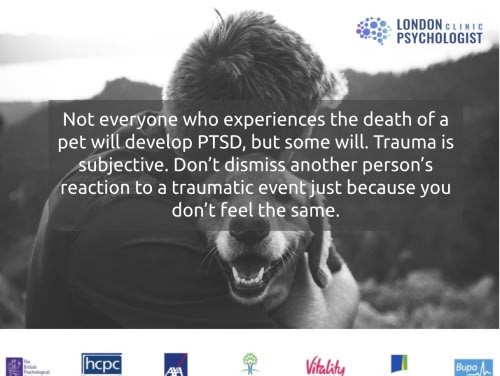Understanding Trauma and the Importance of Empathy

posted 18th June 2023
Understanding Trauma and the Importance of Empathy
Trauma refers to an emotional response to an overwhelmingly distressing or disturbing event or series of events. It is an experience that exceeds a person's ability to cope or integrate the emotions and memories associated with it. Traumatic events can have a profound impact on a person's psychological, emotional, and physical well-being.
Trauma can result from a wide range of experiences, including but not limited to:
Acute Trauma: This involves a single traumatic event, such as a car accident, natural disaster, physical assault, or witnessing violence.
Chronic Trauma: This refers to repeated or prolonged exposure to distressing events, such as ongoing abuse, neglect, or living in a war zone.
Complex Trauma: Complex trauma occurs when a person experiences multiple and varied traumatic events over an extended period, often in the context of an abusive or neglectful relationship, such as in cases of domestic violence or childhood abuse.
The impact of trauma can vary from person to person, but common reactions include:
- Intrusive memories or flashbacks of the traumatic event.
- Avoidance of reminders or triggers associated with the trauma.
- Hyperarousal, including heightened anxiety, irritability, and difficulty sleeping.
- Negative changes in thoughts, emotions, and beliefs, such as feelings of guilt, shame, or self-blame.
- Social withdrawal, difficulty trusting others, or a sense of isolation.
- Physical symptoms such as headaches, stomachaches, or other stress-related ailments.
It's important to note that trauma responses can be complex and may manifest differently in each individual. The impact of trauma can extend beyond the immediate aftermath of the event and can persist for an extended period if not addressed and treated. Individuals can also experience trauma in different ways, and what may seem inconsequential to one person can be deeply impactful to another. For example; childhood bullying. While bullying may be considered a common occurrence during childhood, the persistent emotional and physical harm inflicted by bullies can have long-lasting effects. The experience of being targeted, humiliated, and isolated can lead to feelings of fear, low self-esteem, and social anxiety, which may manifest as psychological trauma. Another example is the loss of a pet. For some people, the loss of a beloved pet may be perceived as insignificant by others who don't share the same bond with animals. However, pets can become cherished family members, providing companionship, emotional support, and unconditional love. The sudden or traumatic loss of a pet can trigger intense grief, sadness, and feelings of emptiness, which may develop into psychological trauma.
The loss of a pet or childhood bullying can potentially lead to post-traumatic stress disorder (PTSD) in some individuals. PTSD is a mental health condition that can develop after experiencing or witnessing a traumatic event. While PTSD is commonly associated with major traumas like war, accidents, or assaults, it can also occur in response to other types of traumatic experiences, including those that may be considered less severe by society. The sudden or traumatic death of a pet, especially if it involves witnessing or being present during the event, can lead to symptoms of PTSD. These may include intrusive thoughts or memories of the event, flashbacks, avoidance of reminders of the pet, intense grief or sadness, and difficulties in functioning or finding enjoyment in activities.
Similarly, childhood bullying, particularly when it involves repetitive and severe emotional or physical abuse, can have long-lasting effects on a person's mental health. Some individuals who have experienced chronic bullying may develop PTSD as a result. The ongoing trauma, fear, and humiliation associated with bullying can lead to symptoms such as hypervigilance, anxiety, nightmares, social withdrawal, and a persistent negative self-image.
It's crucial to remember that the impact of an event can vary depending on a person's unique experiences, vulnerabilities, and coping mechanisms. What may seem insignificant to one individual could have a profound impact on another, and it's important to validate and respect each person's subjective experiences and emotions.
The duration of the after-effects of trauma can vary widely from person to person. It is important to recognise that there is no set timeline for recovery, and everyone's healing journey is unique. The length of time the effects of trauma last can depend on various factors, including the nature of the traumatic event, the individual's resilience, the presence of support systems, and the effectiveness of coping strategies.
In some cases, the aftereffects of trauma may be relatively short-lived, lasting for a few weeks or months. With time, support, and appropriate interventions, individuals can gradually regain a sense of safety, restore their emotional well-being, and resume their daily functioning.
However, for others, the effects of trauma can persist for months or even years, leading to what is known as post-traumatic stress disorder (PTSD) or complex post-traumatic stress disorder (C-PTSD). PTSD and C-PTSD are characterised by persistent symptoms such as intrusive memories, flashbacks, nightmares, hyperarousal, avoidance behaviors, and difficulties with mood regulation and interpersonal relationships. It's important to remember that seeking professional help can make a significant difference in managing and recovering from the aftereffects of trauma.



